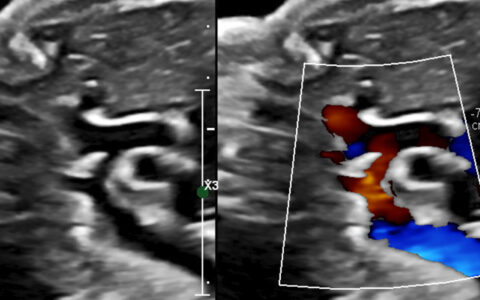A protein vital for brain function may be a key to protecting failing hearts in children with Duchenne muscular dystrophy (DMD). Heart failure is a common killer at a young age for DMD patients and there are no effective treatments currently. The loss of heart strength and function often begins as young as 3 to 5 years old, which can be followed by cardiomyopathy, heart failure and death.
Discovering a Potential Therapeutic
New research presented at the American Heart Association’s Basic Cardiovascular Sciences Scientific Sessions in August 2018 offers hope for preventing heart failure in DMD patients. Looking to gain a better understanding of how cardiomyopathy occurs, cardiovascular researchers at Vanderbilt University Medical Center studying DMD patients measured the blood levels of the protein brain-derived neurotrophic factor (BDNF) and its receptor, tropomyosin kinase B (TrKB). BDNF, which helps protect against cell death, was found to increase initially in patients with functioning hearts, then decrease as heart function was lost.
“The potential to develop BDNF as a therapeutic for DMD would be very exciting.”
“There are currently no DMD-specific cardiovascular therapies,” said Jonathan Soslow, M.D., assistant professor of Pediatrics at Vanderbilt. “So the potential to develop BDNF as a therapeutic for DMD would be very exciting.”
Initial Investigation
Working with this new knowledge, the Vanderbilt group sought to develop a way to increase BDNF with the goal of preserving heart function. They gave mice a plant-derived compound, the TrkB agonist 7,8-dihydroxyflavone (DHF), which binds to the TrKB receptor and recreates the protection that is provided by BDNF. Mice were given the compound orally for 26 weeks. A small molecule flavonoid derivative such as DHF is especially attractive as a candidate therapeutic, because it can be administered non invasively.
Echocardiography found that DHF preserved the heart’s function compared with a control group, an exciting discovery that could prove significant for prolonging the life of DMD patients.
“BDNF also appears to be heart protective and heart specific. Data suggests the more there is, the better the heart function.”
“Researchers have long known that BDNF is important for brain function. It helps brain cell survival and growth and promotes memory,” Cristi Galindo, Ph.D., research assistant professor of Medicine at Vanderbilt University Medical Center, told the American Heart Association session. “Our research shows BDNF also appears to be heart protective and heart specific. Data suggests the more there is, the better the heart function in the patient,” Galindo said.
The next steps for the DHF compound are to test in larger animals, and if successful, to eventually bring the therapy to humans.






